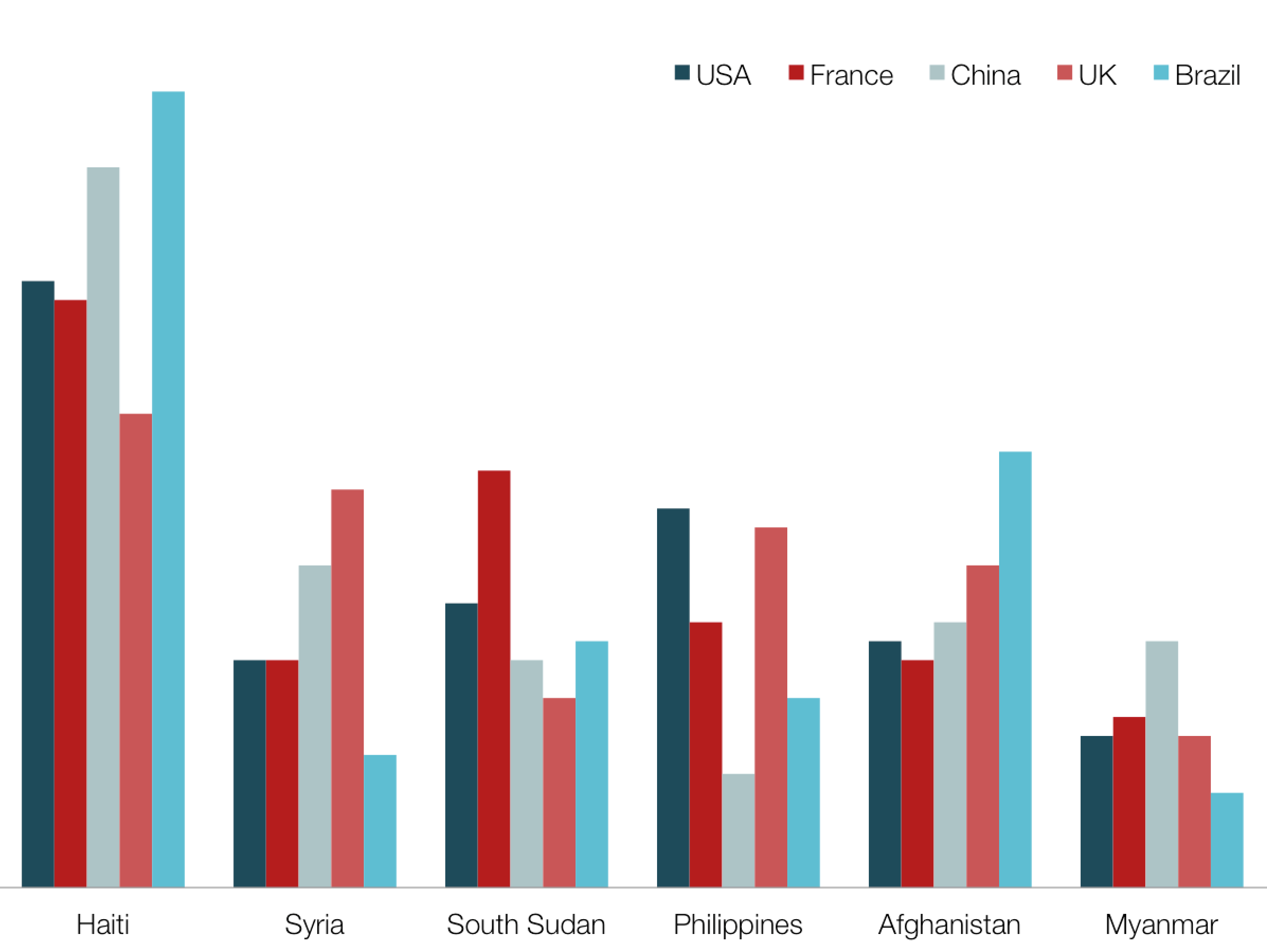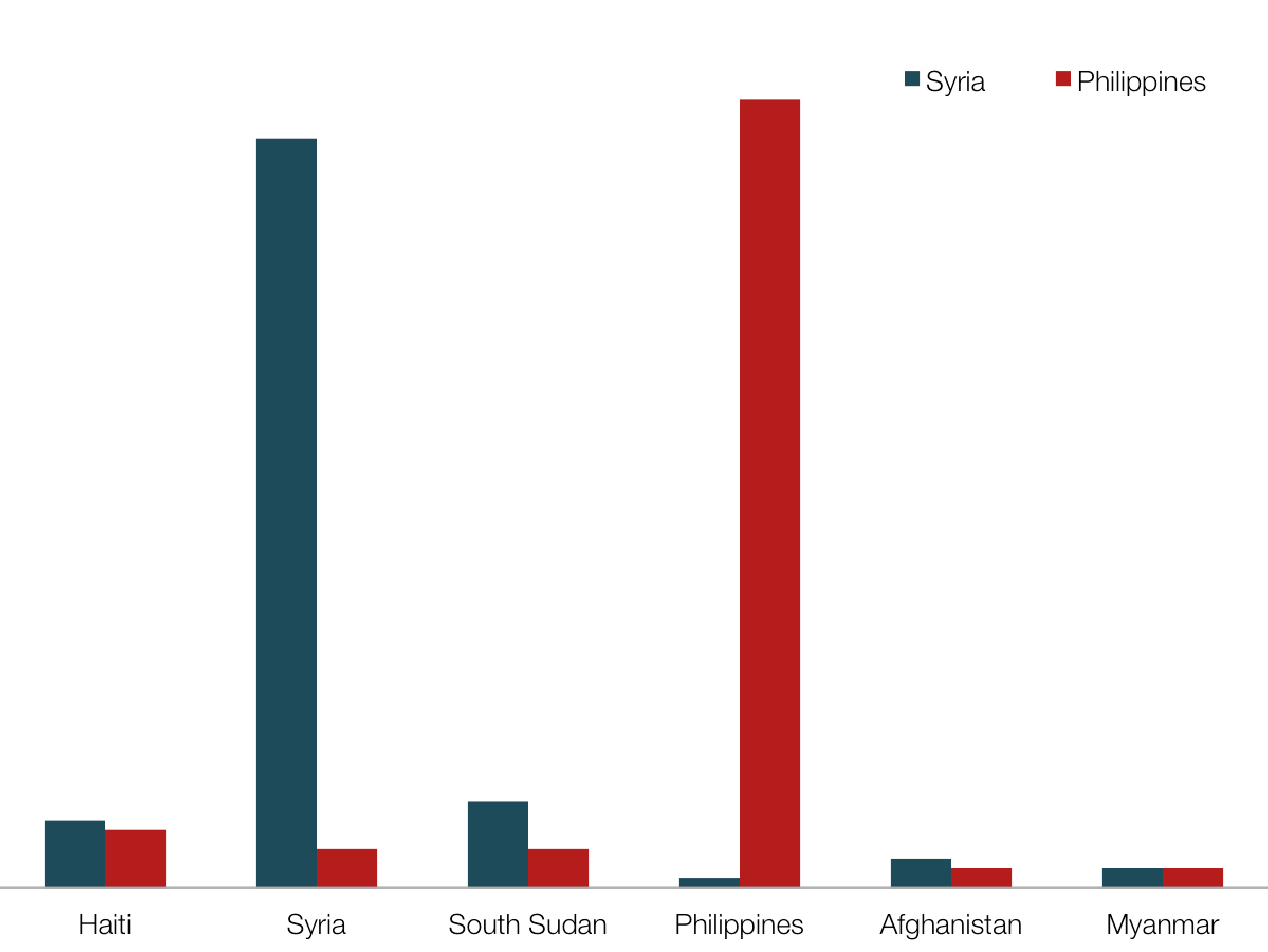June 20th marks the fourteenth year of World Refugee Day, dedicated to raising awareness for the plight of refugees around the world. This day is celebrated by recognizing the ongoing struggles of millions of forcibly displaced persons through sharing their stories of courage and survival, empowering refugees, and helping those who don’t have a place to call home.
Between April 28 and June 19, 2014, RIWI collected data in 55 countries asking the following question:
• Haiti Earthquake
• Syria Refugee Crisis
• South Sudan Food Crisis
• Philippines Typhoon
• Afghanistan Food Crisis
• Myanmar (Burma) Refugee Crisis
The results were surprising: We expected people to donate to more current catastrophes, such as the refugee crisis in Syria and the Philippines typhoon, but found that the majority of respondents in most countries said they would donate to the Haiti earthquake, even though the disaster occurred in 2010. RIWI also surveyed Syria and the Philippines this same question, and not surprisingly, respondents from their respective countries chose to donate to their own national crisis.


One explanation for this data trend may come from the use of media attention and outreach. Haiti’s earthquake had a huge global reach through numerous news channels, social media, and celebrity fundraising. Extensive use of these tools for popularization of fundraising is certainly effective, as shown by Haiti and its prolonged reception of attention. However, this success may also change perceptions of the crisis in relation to other global issues. Though Haiti is indeed a worthy cause for donation and fundraising goals, there are many other crises that are in desperate need of public awareness to generate global aid.
The impact of heavy media coverage on particular events can create consequences for ongoing refugee and food crises, as they appear to garner lower interest in donations. For instance, the UN has declared the Syrian crisis to be the worst humanitarian crisis of the 21st century, with 9.3 million people in need and 2.8 million refugees in neighbouring countries, yet financial aid for Syrian humanitarian relief is significantly underfunded.
“Haiti still being the leading response four years after the earthquake was a surprise,” said Gregory Pasche, Director of Communications and Fundraising at the Swiss-based NGO Medair. “Yet we don’t know if people are saying they would make a donation to Haiti today, or if they were referring to a crisis they might have ever donated money to. What RIWI’s data does tell us, however, is that Haiti’s earthquake is still very much top-of-mind, while more recent natural disasters like the Philippines’ massive typhoon in 2013 lag behind in terms of continued public awareness and interest in giving.”
Medair is an international humanitarian agency based in Switzerland that delivers emergency relief and recovery services in vulnerable countries around the world. Since 1988, Medair has provided quality health care, safe drinking water, and sturdy shelters for millions of people in 31 countries—including South Sudan, Haiti, Afghanistan, the Philippines, Lebanon, and Jordan. Medair helps people who are suffering in remote and devastated communities around the world survive crisis, recover with dignity, and develop skills to build a better future.
You can get involved on World Refugee Day to honour those who are forced to flee their homes under the threat of persecution, conflict, and violence. Visit Medair to donate and learn more about their work with refugees and vulnerable people around the world.
